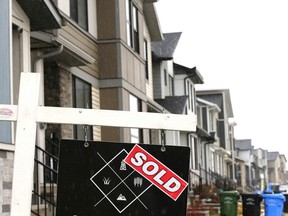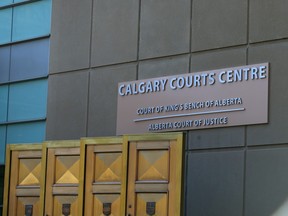The CBC, in an Oct. 14 episode of Marketplace, brought the issue of mortgage fraud in Canada to the forefront.
Real eState
Forceful action needed to rid real estate industry of any bad actors
|
|

It’s like I’m a naive character from Saved by the Bell absolutely gobsmacked that there are people who don’t immediately expect the consequences of their bad behaviour to crash down on them.
But what I saw on the show was objectively stunning.
Real estate agents steering clients without pre-approvals — in this case, newcomers to Canada — to homes well beyond what they could afford. Brokering firm deals with zero escape when the bank wouldn’t approve them for the loan they needed only to then turn around and introduce them to mortgage brokers who could make magic happen.
The agents made money, the brokers made money, and the buyers got hosed.
It was a pretty searing indictment of an industry that has long appeared in dire need of a clean-up.
Between the perception that real estate agents broadly and routinely deal in corrupt practices including buyer manipulation, phantom bidding, opaque processes, and now outright fraud, whether such behaviour actually represents a small segment of our industry engaging in deep corruption, or more broadly that such corruption is low-key baked in all around us, the conclusion is the same: it’s time to clean house. Forcefully.
But, you know, actually clean house, not simply continue along with our tepid industry self-regulation while pretending that we are interested in holding bad actors accountable.
In an email to its members this week, Ontario Real Estate Association President Stacey Evoy seemed similarly fired up.
“These bad actors do harm to buyers and sellers, the real estate profession, and are breaking the law,” she said. “They should be tossed out of the profession so that we can get back to our main job of helping Ontarians achieve the Canadian dream of home ownership.
When realtors break the rules, we encourage you to come forward and report it immediately so action can be taken. We are meeting with RECO (Real Estate Council of Ontario) next week to discuss this matter and the need for stronger enforcement of the rules,” Evoy said.
Sounds suitably definitive and forceful until you delve deeper and see that the reporting mechanism we’re evidently to rely on appears deeply flawed, requiring one to not only report under their own name but to include documentation as evidence. Seems an unreasonably high bar to trigger an investigation into suspected bad actors.
I absolutely do not believe that mortgage fraud is even remotely close to as prevalent and widespread as the CBC program suggested. But it is absolutely out there. And the perception that our industry condones it as acceptable is all we should need to know for us to take forceful action to show that it’s not.
Real eState
How real estate commission changes could affect buyers and sellers – The Washington Post


Starting in July, the real estate industry is bracing for a sweeping shake-up thanks to a $418 million settlement offered by the National Association of Realtors to overhaul its long-entrenched commission structure for agents and pay compensation to the sellers and real estate brokerages who sued.
The NAR got a further blow on April 5, when a federal court cleared the way for the Justice Department to reopen an antitrust probe into the group and its rules regarding home-sale commissions.
While the settlement awaits final approval later in the year, a preliminary sign-off by a federal judge on Tuesday means that the outcome is highly likely. In addition, the NAR has already started planning to change some of its policies starting this summer. Although these will likely affect home buyers more than sellers, both sides will have to make some adjustments, including how they work with agents.
Real eState
Calgary's homes market expected to see strong price growth – Calgary Herald
High interest rates provide little incentive for holders of low fixed rates to move, dampening supply and helping to drive up prices.


Reviews and recommendations are unbiased and products are independently selected. Postmedia may earn an affiliate commission from purchases made through links on this page.
Article content
Calgary’s already hot resale real estate market is forecast to keep booming for the rest of the year, a new report on price growth suggests. The recent Royal LePage report predicted that the average price of a home in Calgary will jump eight per cent by year’s end, capping off another year of strong growth.
Yet the current real estate boom is different from past ones, says a local realtor.
Advertisement 2
Article content
Article content
“The lack of supply has driven prices upwards,” says Corinne Lyall, broker/owner of Royal LePage Benchmark.
While short supply is not all that different from past boom markets, a key reason for low inventory is, she adds.
“Interest rates having increased in the last two years negatively affected homeowners,” Lyall says.
Typically as prices rise, move-up buyers list their home, but that is not happening to the same extent this time.
“Many may not want to move because they may still be holding onto a low interest rate for their mortgage,” Lyall adds.
Many are likely reluctant to sell because they are locked into fixed-rate mortgages at about two per cent compared with the current market fixed rates at about five per cent.
In turn, they have low motivation to move until rates move lower, she notes.
The overall low supply paired with rising demand from record migration to the city factor into Royal LePage’s prediction that the average price could reach $716,580 by the end of 2024. Already, the average price has grown nearly 10 per cent by the end of March, versus the same time last year, to about $674,000.
Article content
Advertisement 3
Article content
Demand for single-family detached homes remains a notable factor in the market, with Royal LePage highlighting that the average price in March was $774,000, an increase of about 10 per cent year over year.
Other segments are seeing rising demand, too, in part because single-family homes are increasingly pricey, and affordable ones are in short supply, Lyall says.
To that end, the Royal LePage study notes the average condominium price by the end of March was $264,800, up nearly nine per cent from the same time last year. Calgary Real Estate Board statistics from March also reflect rising demand for apartment and row. Both saw the highest percentage gains in benchmark price year over year.
Apartments grew more than 17 per cent to $337,700, while row increased more than 20 per cent to reach $448,700.
All segments are seeing higher prices amid dwindling supply and high demand, marking a shift in focus on affordability amid higher borrowing costs, Lyall says.
Still, single-family detached homes remain the most active segment, accounting for about 44 per cent of all sales in March. Its share is decreasing as prices rise. As of mid-April, for example, the average price was $793,713, up 10 per cent year over year, according to CREB.
Advertisement 4
Article content
“It’s sort of a chicken and the egg thing,” says realtor Mark Neustaedter with eXp Realty in Calgary.
Inventory is low because of high demand, but it is not increasing because sellers worry about being able to find a home due to low inventory, he further explains.
New listings have been rising, up nearly 13 per cent for all housing types, CREB mid-April numbers show, but active listings have fallen 17 per cent.
Notably in March, housing supply fell 29 per cent to less than one month, the lowest level in more than a decade. Although far below the all-time record of 4,107 transactions in March 2022, the 2,664 resales this year still were the fourth highest strongest for March since 2010.
Yet even amid a strong seller’s market, price still matters because borrowing costs remain elevated, Neustaedter notes.
“Over-priced homes will still not sell, even in this hot market.”
Article content
Real eState
Developer Sam Mizrahi files lawsuit against Edward Rogers and his real estate fund, alleges $30-million loss – The Globe and Mail
A condominium at 128 HazeltonAve. in Toronto’s Yorkville neighbourhood. The property was developed by Sam Mizrahi.Fred Lum/The Globe and Mail
Real estate developer Sam Mizrahi has filed a lawsuit against Edward Rogers and Constantine Enterprises Inc., the real estate fund Mr. Rogers owns, escalating a battle between the businessmen amid an alleged $30-million loss on their flagship condo project.
In a lawsuit filed this month in Ontario Superior Court, Mr. Mizrahi alleges Mr. Rogers and his business partner Robert Hiscox, who co-own Constantine, blocked multiple attempts made by Mr. Mizrahi to salvage more value from the two real estate ventures they were jointly developing. After Mr. Mizrahi’s efforts were denied, Constantine requested court-appointed receivers for both projects.
Mr. Mizrahi is suing Mr. Rogers, Mr. Hiscox and Constantine for breach of contract, negligence, and breach of fiduciary duty, among other allegations, and is seeking $100-million in damages.
Mr. Mizrahi alleges his 20-unit luxury condo project developed with Constantine, known as 128 Hazelton in Toronto’s Yorkville neighbourhood, has incurred losses totalling more than $30-million, and that Constantine wants him to share 50 per cent of this loss. Because Mr. Mizrahi has refused, he alleges Constantine blocked his attempts to sell undeveloped land at their other project, known as 180 Steeles or 180 SAW, and also blocked other financing initiatives he put together.
“The defendants refused to realize the profit to be garnered on the 180 SAW project based upon offers Sam solicited, because Sam asserted his legal rights and could not be coerced to agree to indemnify Constantine 50 per cent of its losses on the 128 Hazelton project as a condition of accepting the offers on the 180 SAW project,” the lawsuit alleges.
In an e-mail to The Globe and Mail, Constantine’s Mr. Hiscox disputed Mr. Mizrahi’s narrative, claiming that “in December 2021, Sam, through one of his entities, had agreed, as a 50-per-cent partner in Hazelton, to share equally in the losses of that project. This was documented in the ‘contribution agreement.’”
Mr. Hiscox also wrote: “We are about to enter the 10th year of what Mizrahi represented would be a three-year project,” adding that the project has exceeded Mr. Mizrahi’s original budget by more than $50-million, or almost double the original estimate.
Mr. Mizrahi filed his lawsuit after two major developments. In January, the senior lender to 128 Hazelton, Duca Financial Services Credit Union Ltd., alleged default and requested a receiver for the project.
A month later, Constantine bought out Duca’s debt, then filed its own request for court-appointed receivers for both 128 Hazelton and 180 Steeles, with the hope that a third party would complete sales for each. In an interview with The Globe at the time, Mr. Mizrahi referred to the action as “predatorial” behaviour.
As of January, Constantine and Mr. Mizrahi owned eight units in 128 Hazelton, and in its receivership application Constantine alleged Mr. Mizrahi’s company “failed or neglected to provide its share of the required additional funds necessary to complete and sell the remaining Hazelton project units.”
As for the 180 Steeles project, Constantine alleged it was owed $29-million by Mr. Mizrahi, but had lost confidence in his ability to repay the debt. Constantine was also concerned that Mr. Mizrahi’s company “will continue to fail or neglect to make its required capital contributions to the partnership.” 180 Steeles is located on Toronto’s northern border but is in the preconstruction phase and was put up for sale a year ago.
As the legal battle escalates, both sides have alleged the other has acted in bad faith. In February, for instance, Mr. Mizrahi told The Globe he tried to arrange financing from Third Eye Capital, or TEC, a private lender, to buy out Duca’s loan and sought Constantine’s approval, but later learned Constantine had struck a private deal to do the same itself. “They didn’t tell me, they weren’t transparent,” he said.
In his e-mail Wednesday, Mr. Hiscox wrote, “There were a number of issues with that financing proposal, not the least of which was the cost of the TEC debt being much higher than the existing Duca debt.”
Mr. Mizrahi also brought in Hyundai Asset Management, a South Korean entity, as a potential buyer for the 180 Steeles project, but Constantine would not agree to the transaction, he alleged in his lawsuit.
Mr. Hiscox wrote in his e-mail that the potential buyer “walked from the deal because of the current status of the zoning approval.”
While Mr. Mizrahi battles Constantine in court, another of his Yorkville condo projects, known as The One, is operating under a receiver. The 85-storey project was put into receivership last fall because it owed $1.6-billion to its lenders, is years behind schedule and faces multiple lawsuits. Mr. Mizrahi was recently replaced by Skygrid Construction Inc. as the project manager.
-
Real eState22 hours ago
Montreal tenant forced to pay his landlord’s taxes offers advice to other renters
-
Media21 hours ago
B.C. online harms bill on hold after deal with social media firms
-



 Investment22 hours ago
Investment22 hours agoMOF: Govt to establish high-level facilitation platform to oversee potential, approved strategic investments
-



 Politics21 hours ago
Politics21 hours agoPolitics Briefing: Younger demographics not swayed by federal budget benefits targeted at them, poll indicates
-
News21 hours ago
Just bought a used car? There’s a chance it’s stolen, as thieves exploit weakness in vehicle registrations
-



 Science21 hours ago
Science21 hours agoGiant prehistoric salmon had tusk-like spikes used for defence, building nests: study
-



 Tech20 hours ago
Tech20 hours agoCalgary woman who neglected elderly father spared jail term
-
Real eState20 hours ago
Luxury Real Estate Prices Hit a Record High in the First Quarter






Comments